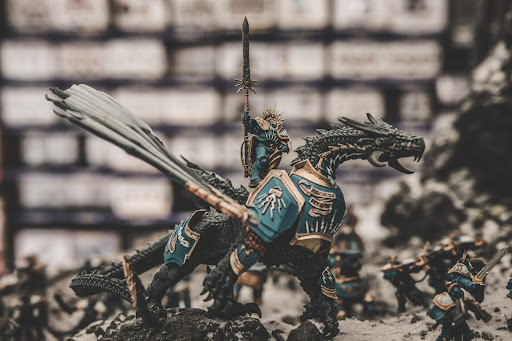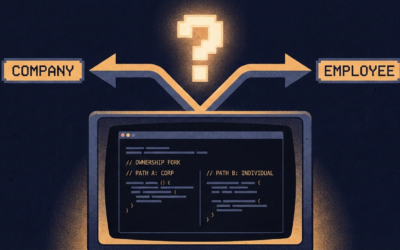“Welcome to Critical Role, where a bunch of us nerdy voice actors sit around and play Dungeons & Dragons.” That’s how Matthew Mercer has introduced the actual play Twitch stream, Critical Role, since the first episode aired on March 12, 2015. The framing was casual, familiar: a group of friends goofing off and telling stories with each other in their Dungeons & Dragons game, just like you and your group of friends might.
But there is no denying that in the past seven years, Critical Role has become a behemoth in the Twitch streaming and tabletop RPG community. A twitch leak last year showed that Critical Role was one of Twitch’s top earners, making 9.6 million dollars in three years from Twitch alone. They have been credited with a Dungeons & Dragons renaissance and have gone from one show on the Geek & Sundry channel to a multimillion dollar company with their own program lineup. They are major guests at a number of fan conventions, and their first campaign (they’re now onto their third) has even been made into an animated series by Amazon Prime.
For many TTRPG streamers just starting out, the Critical Role team is living the dream. But this has brought about a number of changes for them, including the way they interact with fans, sponsors, and protect their intellectual property. So what steps will you need to take if you plan to monetize your hobby and make your game your business? Here are a few lessons to learn from Critical Role.
Forming a Business Early
When Critical Role first aired, it was on Geek & Sundry’s Twitch stream. The group’s Dungeon Master (or DM), Matthew Mercer, was approached by Geek & Sundry’s founder, Felicia Day, who offered to pay them to stream their three year Dungeons & Dragons game. Within two months of the stream, the group became a business: they incorporated Critical Role Productions, LLC, and the cast members owned equity stakes in the company.
The stream was a huge hit, and within a few years, their business had scaled. By 2018, they ran their own Twitch and YouTube channel, and by 2019, they had partnered with major companies to release mainstream collectibles and merchandise. By 2020, they had their own charity foundation and publishing company. Although their Dungeons & Dragons game was a fun story for them, it was also a creative project, and one that they knew would be a big hit. By making an LLC early, Critical Role put themselves in a better position to protect their assets later on.
Sponsorships & Labels
Most gamers sitting at a table with friends don’t have to think about the soda that they’re drinking or whether or not their friends can see the label on their bag of chips. But professional streamers have to be very careful about what brands they promote on stream. That’s why you may notice cups of coffee with the label blocked out, or soda cozies on streams. Sharing a name brand can give the impression that a product is being placed for sponsorship — and if the brand does not want to be associated with that stream, they can take action against their IP being used.
In the beginning, Critical Role received most of their funding from sponsors. They were contracted to perform an ad — which they turned into a goofy comedy bit — at the beginning of the show to promote the sponsor and often used products from those sponsors throughout the game. In some cases, they are contracted to exclusively use certain products and services for their streams. In one instance, they even produced a “one-shot” game sponsored by Wendy’s and set in a fast-food-centric universe. If they are not sponsored by a brand, they keep any sign of that brand off-stream.
Interaction With Fans
When Critical Role first aired, their relationship with their fans was very casual and intimate. They often received gifts from fans which they opened on stream, including chapters from a fanfiction that one fan sent in about their characters. They shared fan art on social media and were much more lax about fan-made merchandise or art sold on sites like Etsy or Redbubble.
This began to change as Critical Role moved into their second campaign in 2018, and particularly as they started to produce their animated series with Amazon Prime. In 2021, the year before the show was released, the Critical Role team produced their Content Policy. This became more and more necessary as Critical Role had entered into a contract with Amazon Prime, bringing questions of IP to the forefront.
The Content Policy is a lenient one, honoring their loving relationship with fans. Fan work for noncommercial use is encouraged, and “transformative fan merchandise based on their IP” is allowed to be sold without asking permission, so long as that work isn’t mass-produced. Their logos and trademarks are not to be used by fans, and monetized novels, theatricals, or published games and apps with Critical Role IP are also prohibited. Although non-monetized fanfiction is permitted, the cast is no longer able to read it, since that could lead to a dicey legal dispute if a storyline similar to the fanfiction were to come up in the game.
If you hope to monetize your hobby, it’s good to plan ahead. That way, if your game ever scales and becomes a business, you’ll be prepared to protect your creative endeavors. Need help protecting your IP or learning the do’s and don’ts of IP when it comes to streaming? Let Garcia-Zamor help! Contact us today to learn more or to schedule a consultation.







